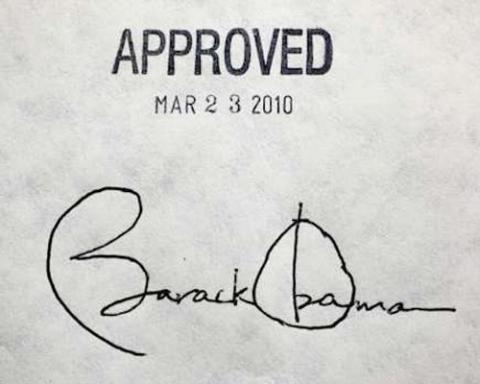There is some good news for Republicans in today’s Quinnipiac Poll of attitudes about the government shutdown. The core assertion that they have been defending during the shutdown negotiations does appear to be accurate. The majority of Americans do not like the Affordable Care Act, a.k.a. “Obamacare.” It is not an overwhelming majority—certainly not the “300 million people” that Senator Cruz claimed to be speaking for. But it is a majority: 47% of voters surveyed report that they oppose the A.C.A., with 45% supporting it, and the remainder undecided.
Unfortunately, however, this majority does not quite translate into support for the current House Republican strategy.
Among the most salient results are:
- By a margin of 58-34 percent, voters oppose the effort to stop the implementation of the Affordable Care Act by cutting off its funding.
- By a margin of 72-22 percent, voters oppose Congress shutting down the federal government to block implementation of the Affordable Care Act.
- Voters also oppose 64-27 percent blocking an increase in the nation's debt ceiling as a way to stop Obamacare.
- American voters disapprove 74-17 percent of the job Republicans in Congress are doing, their lowest score ever. They disapprove 60-32 percent of the job Democrats are doing.
These results suggest—fairly clearly in my opinion— that the general public takes a far more nuanced and complicated view of the Affordable Care Act than do the partisans on either side. People appear to have drawn a distinction between disliking Obamacare and wanting to stop it at any cost. Many who disagree with the law still believe that, as long as it is a law, Congress has a duty to fund it appropriately. And by an overwhelming margin, people do not want the debate over health care reform to spill over into the budget process or the debt-ceiling negotiations.
It remains to be seen whether this will be better news for Republicans or Democrats, but I believe that it is good news for democracy. The polling results show that a substantial majority of voters can separate their opinion of the law from their opinion of the process that produced the law. They may not like it, and they may even want to see it repealed. But they want to see it repealed by the same process that passed it, and not through a back door that circumvents the process outlined in the Constitution for passing, and un-passing, legislation.The results also suggest that most voters aren't as extreme on this issue as the people who are claiming to speak for them. A lot of the support for the A.C.A. is soft support from people who don't think that the legislation goes far enough, or that it makes too many concessions to the insurance industry. They don't love it, but they'll take it. Similarly, a lot of the opposition is soft opposition from people who think it is probably a bad idea but who don't think that it is a patently unconstitutional, liberty-destroying usurpation of all things wise and good. And a lot of us seem to be withholding judgment until we see how it all works out before going through a wrenching repeal/defunding process so soon after a wrenching approval/funding process.
Is Obamacare a good thing? Should it be repealed? Should it be defunded? Should the entire government be ground to a stop to prevent its implementation? For the majority of us, these are four completely different questions, each of which requires a completely different kind of negotiation and analysis. And a huge majority of those who answer yes to the first question do not answer yes to the last. To a great extent, that is how grown ups are supposed to think about complex issues. And we are almost unanimous in wishing that our leaders in both parties would start thinking about things like grown ups.

